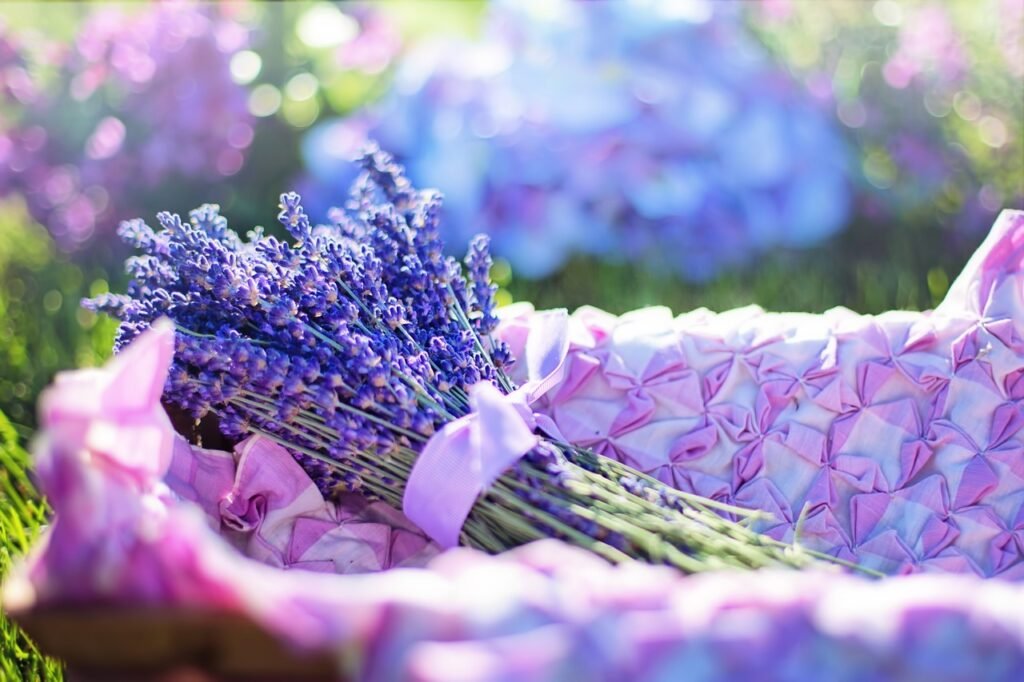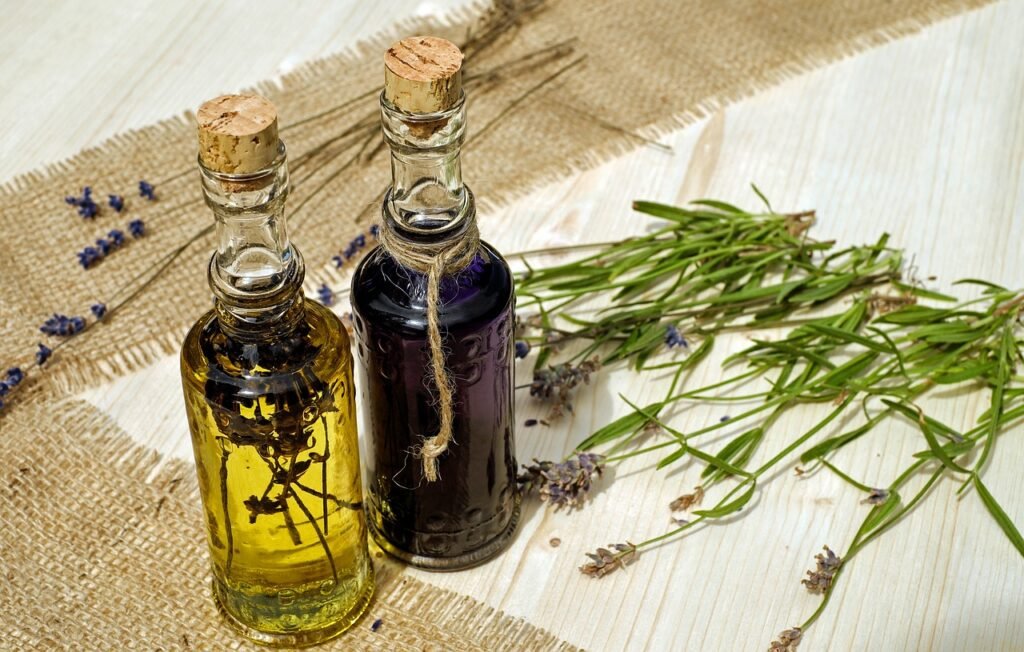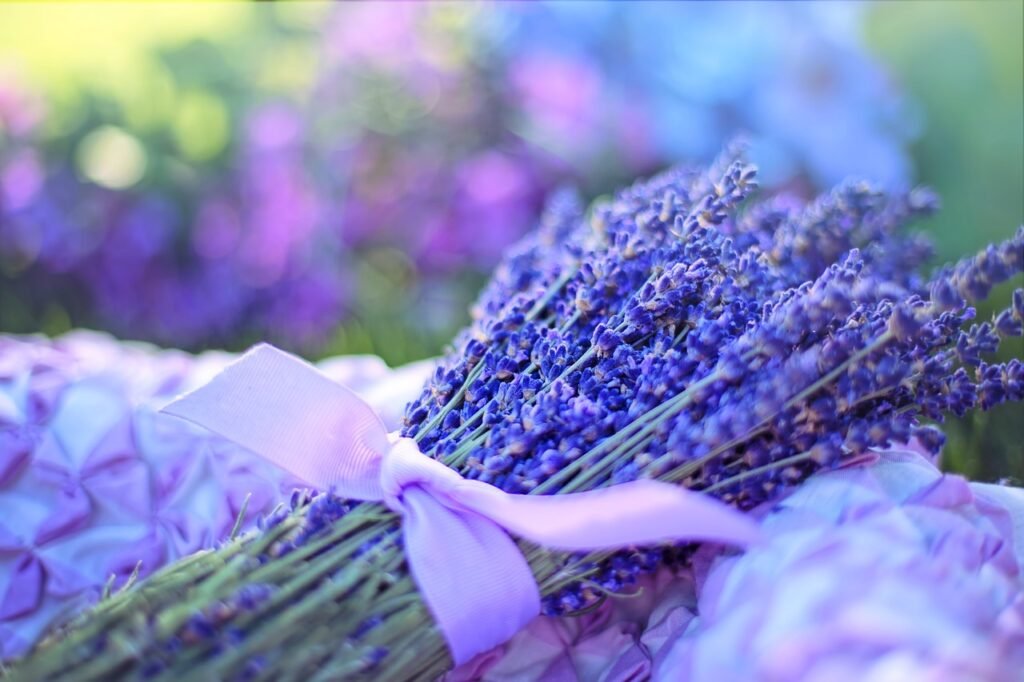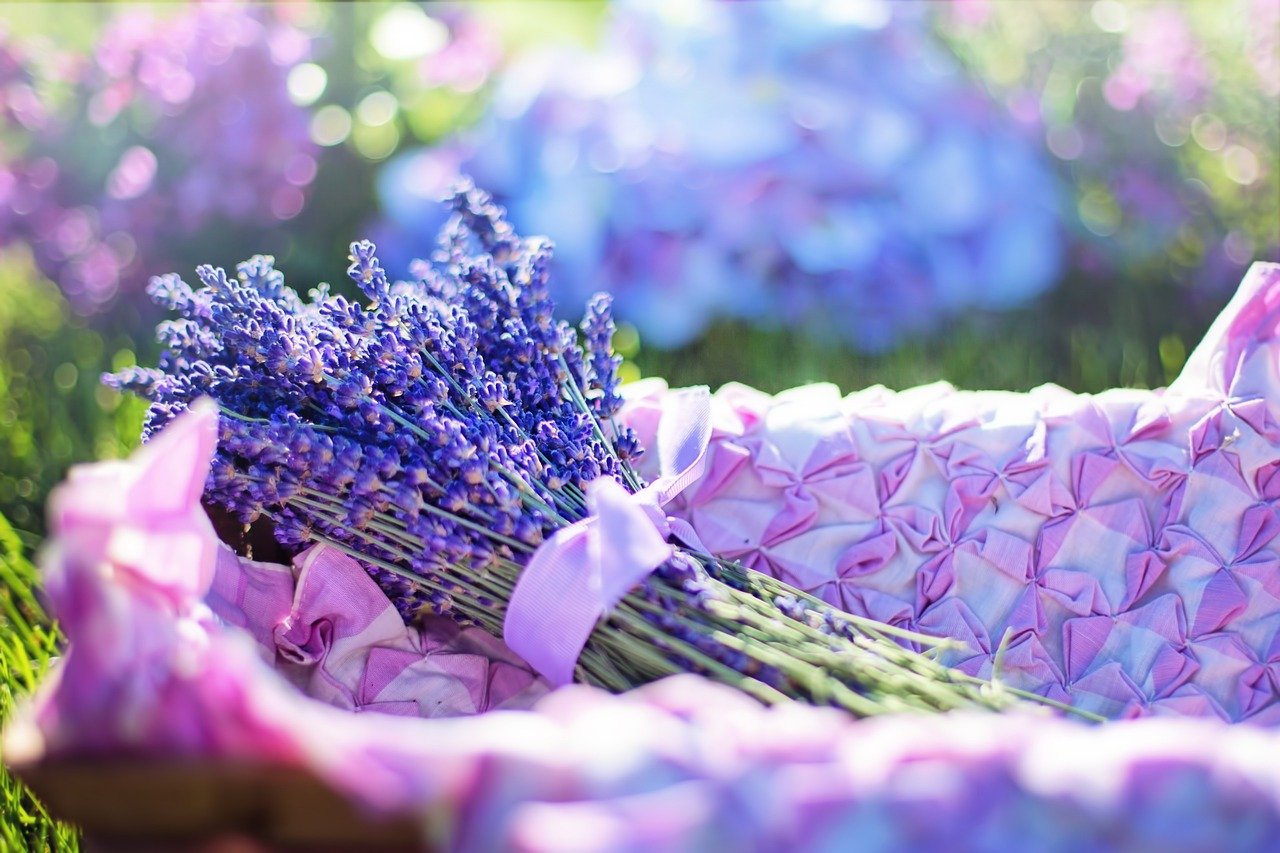Immerse yourself in the world of aromatherapy and discover the wonders it can bring to your relaxation and overall well-being. By harnessing the power of natural essential oils, aromatherapy offers a holistic approach to achieving balance and tranquility in your daily life. This article explores the various ways in which aromatherapy can enhance relaxation and promote a sense of well-being, ultimately helping you find peace and rejuvenation amidst the chaos of modern living. So, sit back, inhale the soothing scents, and let the magic of aromatherapy transport you to a state of blissful calm.

Understanding Aromatherapy
Aromatherapy is a holistic healing practice that utilizes essential oils derived from plants to enhance physical and mental well-being. These essential oils contain the concentrated aromatic compounds of the plants and are believed to have therapeutic properties. By inhaling or applying these oils to the body, aromatherapy aims to promote relaxation, reduce stress, and improve overall emotional and physical health.
What is Aromatherapy?
Aromatherapy is the art and science of using essential oils to achieve therapeutic benefits. Essential oils are highly concentrated plant extracts that capture the essence and scent of the plant from which they are derived. They are typically extracted through processes such as steam distillation or cold pressing. The aromatic compounds found in these oils are thought to interact with the body’s limbic system, which is responsible for regulating emotions, memory, and stress response.
History of Aromatherapy
The use of aromatic plants for therapeutic purposes dates back thousands of years. Ancient civilizations such as the Egyptians, Greeks, and Chinese recognized the healing properties of plants and developed methods to extract the oils for medicinal and aromatic purposes. Aromatherapy as we know it today has its roots in the early 20th century when French chemist René-Maurice Gattefossé coined the term “aromatherapy.” Gattefossé’s research and writings on the healing properties of essential oils laid the foundation for modern aromatherapy practices.

How Aromatherapy Works
Aromatherapy works through the inhalation or application of essential oils, which then interact with the body’s systems to produce therapeutic effects. When inhaled, the aromatic molecules of the essential oils stimulate the olfactory system and travel through the nasal passages, reaching the limbic system of the brain. This interaction triggers various emotional and physiological responses, such as relaxation, stress reduction, and enhanced mood. Additionally, when essential oils are applied topically, they can be absorbed through the skin and into the bloodstream, where they may exert their therapeutic benefits.
Benefits of Aromatherapy
Promotes Relaxation
One of the key benefits of aromatherapy is its ability to promote relaxation. The soothing scents of essential oils such as lavender, chamomile, and ylang-ylang have been shown to have calming effects on the mind and body. Inhaling these oils or using them in a massage can help reduce muscle tension, alleviate stress, and induce a state of deep relaxation.
Reduces Stress and Anxiety
Aromatherapy is known for its stress-reducing properties. The inhalation of essential oils can help activate the body’s relaxation response, which counteracts the effects of stress and anxiety. Oils like bergamot, lavender, and frankincense have been extensively studied for their anxiolytic properties and have shown promising results in reducing stress levels and promoting a sense of calm.
Improves Sleep Quality
Sleep is crucial for overall well-being, and aromatherapy can play a significant role in improving sleep quality. Essential oils such as lavender and chamomile can be diffused in the bedroom or added to a warm bath before bedtime to promote relaxation and create a soothing environment conducive to sleep. The calming effects of these oils can help quiet the mind, reduce insomnia, and enhance the overall quality of sleep.
Enhances Mood and Emotional Well-being
Aromatherapy has the power to uplift the mood and enhance emotional well-being. Essential oils like citrus oils (such as bergamot and sweet orange) are known for their mood-boosting properties. Inhaling these oils or using them in a diffuser can help alleviate feelings of depression, anxiety, and stress, promoting a more positive outlook and emotional balance.
Essential Oils for Relaxation
Lavender
Lavender is one of the most popular essential oils used for relaxation. Its soothing floral scent is known to promote calmness, relieve anxiety, and improve sleep quality. Lavender oil can be diffused, added to a warm bath, or used in massage therapy to induce a state of deep relaxation.
Chamomile
Chamomile essential oil is revered for its gentle and calming properties. It is often used in aromatherapy to reduce anxiety, ease stress, and promote relaxation. Diffusing chamomile oil or adding a few drops to a warm compress can help create a peaceful and tranquil atmosphere.
Ylang Ylang
Ylang ylang essential oil has a sweet, exotic scent that is widely used in aromatherapy for its relaxing and aphrodisiac properties. This oil is known to reduce feelings of stress and tension, alleviate anxiety, and promote emotional balance. Adding a few drops of ylang-ylang oil to a diffuser or incorporating it into a massage can enhance relaxation and uplift the mood.
Bergamot
Bergamot essential oil is derived from the citrus fruit of the bergamot orange tree and is renowned for its uplifting and calming effects. It is often used to relieve anxiety, promote relaxation, and improve mood. The refreshing and citrusy scent of bergamot oil can be diffused or used in massage therapy to create a soothing and stress-relieving ambiance.

Methods of Using Aromatherapy
Diffusion
Diffusion is one of the most common methods of using aromatherapy. It involves dispersing essential oils into the air, allowing their pleasant scents and therapeutic properties to be inhaled. Aromatherapy diffusers come in various forms, such as ultrasonic diffusers, nebulizers, and reed diffusers. Diffusing essential oils can create a calming and pleasant atmosphere, perfect for relaxation and well-being.
Massage
Massage therapy combined with aromatherapy can be a powerful way to enhance relaxation and overall well-being. By combining the benefits of touch and the therapeutic properties of essential oils, a massage can help relieve muscle tension, reduce stress, and promote relaxation. During a massage, the essential oils are diluted in a carrier oil and gently massaged into the skin, allowing for both topical absorption and inhalation.
Inhalation
Inhalation is a direct and effective method of using aromatherapy. Simply inhaling the essential oils directly from the bottle or using a personal inhaler can quickly deliver the aromatic molecules to the olfactory system. This method can be especially useful for managing stress and anxiety in the moment, as inhalation promotes immediate relaxation and a sense of calm.
Baths
Aromatherapy baths can be incredibly relaxing and rejuvenating. Adding a few drops of your chosen essential oils to a warm bath allows for full-body absorption and inhalation of the aromas. The warm water helps to further open the pores and prime the body for maximum therapeutic benefits. Aromatherapy baths can be a wonderful self-care ritual to unwind, relax, and promote overall well-being.
Creating a Relaxing Aromatherapy Routine
Choosing the Right Essential Oils
When creating a personal aromatherapy routine, it is essential to choose essential oils that resonate with your needs and preferences. Consider your desired outcomes, such as relaxation, stress reduction, or better sleep quality, and select oils that have been traditionally used for those purposes. Experiment with various oils to find the scents that bring you the most peace and tranquility.
Setting Up a Relaxing Environment
To fully enjoy the benefits of aromatherapy, it is crucial to create a relaxing environment conducive to relaxation. Clear the space of clutter, dim the lights, and create a soothing ambiance with soft music or nature sounds. Consider using a diffuser or candles to disperse the chosen essential oils throughout the room. Creating a peaceful and tranquil environment can enhance the overall effectiveness of your aromatherapy practice.
Incorporating Aromatherapy into Daily Life
To harness the full potential of aromatherapy, it is beneficial to incorporate it into your daily life. Start by creating a morning or evening ritual that involves aromatherapy, such as diffusing an uplifting oil to invigorate your senses, or using a scented hand lotion that promotes relaxation before bed. Integrating aromatherapy into your daily routine allows you to experience its benefits consistently and make it a natural part of your well-being practices.
Precautions and Safety Measures
Proper Dilution of Essential Oils
It is crucial to dilute essential oils properly before applying them to the skin or using them in a bath. Essential oils are highly concentrated and can cause skin irritation or sensitization if used undiluted. Always follow recommended dilution guidelines and use a carrier oil, such as jojoba or sweet almond oil, to dilute essential oils before topical application.
Patch Testing
Before applying essential oils to larger areas of the skin, it is advisable to perform a patch test. Apply a small amount of diluted oil to a patch of skin (such as the inner forearm) and observe for any adverse reactions, such as redness, itching, or irritation. If any negative reactions occur, discontinue use and consult with a healthcare professional.
Avoiding Certain Essential Oils
Certain essential oils should be avoided or used with caution, especially during pregnancy, while breastfeeding, or if you have specific medical conditions. Oils such as clary sage, peppermint, and rosemary should be used sparingly or avoided altogether during pregnancy, as they may have potential risks. If you have any concerns or underlying health conditions, it is advisable to consult with a healthcare professional before using essential oils.
Consultation with a Healthcare Professional
Aromatherapy is generally safe and well-tolerated by most individuals. However, if you have specific health concerns, allergies, or are taking medications, it is essential to consult with a healthcare professional before incorporating aromatherapy into your wellness routine. They can provide personalized advice and guidance based on your specific needs and health history.
Research and Evidence
Studies on the Effects of Aromatherapy
Numerous studies have explored the effects of aromatherapy on relaxation and well-being. Research has shown that essential oils, such as lavender, chamomile, and bergamot, have significant anti-anxiety and stress-reducing properties. These oils have been found to activate certain receptors in the brain, promoting relaxation and calmness. While further research is still needed, the existing evidence supports the potential benefits of aromatherapy in enhancing relaxation and well-being.
Aromatherapy as Complementary Therapy
Aromatherapy is often used as a complementary therapy alongside conventional medical treatments to enhance well-being and relieve symptoms. It can be particularly useful in managing stress, improving sleep quality, and reducing anxiety in conjunction with other therapeutic modalities. Many healthcare settings, such as hospitals and hospices, have incorporated aromatherapy into their care practices to help patients relax, reduce pain perception, and alleviate emotional distress.
Combining Aromatherapy with Other Relaxation Techniques
Meditation
Combining aromatherapy with meditation can create a deeply relaxing and immersive experience. By incorporating soothing essential oils into your meditation space, you can enhance the calmness and tranquility of your practice. The scent of the oils can serve as a focal point, helping to quiet the mind and deepen relaxation during meditation.
Yoga
Aromatherapy and yoga are a perfect synergy for relaxation and well-being. Integrating essential oils into your yoga routine can enhance the mind-body connection and deepen the relaxation achieved through the practice. Certain oils, such as lavender or frankincense, are commonly used during yoga practices to promote relaxation, mindfulness, and spiritual awareness.
Deep Breathing Exercises
Deep breathing exercises, such as diaphragmatic breathing or alternate nostril breathing, can be complemented by the use of essential oils. Inhaling calming oils like lavender or chamomile during breathing exercises can further promote relaxation, reduce stress, and deepen the benefits of the practice. The combination of deep breathing and aromatherapy can be a powerful tool for stress relief and centeredness.
Aromatherapy for Specific Situations
Promoting Relaxation during Pregnancy
Aromatherapy can be a useful tool for promoting relaxation and reducing stress during pregnancy. Essential oils such as mandarin, neroli, and geranium are generally considered safe during pregnancy and can be diffused or used in massage to alleviate anxiety and promote a sense of calmness. However, it is important to consult with a healthcare professional experienced in aromatherapy and pregnancy to ensure safe and appropriate use.
Aiding Relaxation during Labor
Aromatherapy can play a supportive role during labor by promoting relaxation, reducing pain perception, and creating a soothing environment. Essential oils such as clary sage, lavender, and frankincense are commonly used during labor to help manage anxiety, promote relaxation, and enhance the birthing experience. It is important to work with a trained aromatherapist or midwife experienced in aromatherapy for labor to ensure safe and optimal use.
Helping Children Relax and Sleep
Aromatherapy can be beneficial for children by promoting relaxation and improving sleep quality. However, it is important to use essential oils with caution and follow age-specific guidelines. Gentle oils like lavender or chamomile can be diffused in the bedroom or added to a warm bath to create a calming and soothing environment. Always use child-safe dilutions and consult with a healthcare professional for specific recommendations.
Relaxation for Patients in Hospital Settings
Aromatherapy has gained popularity in hospital settings as a complementary therapy to help patients relax, reduce anxiety, and manage pain. The use of essential oils, especially lavender and citrus oils, in hospitals has been shown to improve patients’ overall well-being and reduce the need for certain medications. Aromatherapy can be used in diffusers, massage therapy, or inhalation methods to provide comfort and relaxation during hospital stays.
Conclusion
Aromatherapy is a powerful tool for promoting relaxation, reducing stress, and enhancing overall well-being. By harnessing the therapeutic properties of essential oils and incorporating them into daily routines, individuals can experience the profound benefits of aromatherapy. Whether used for relaxation during pregnancy, aiding relaxation during labor, or simply as a way to reduce stress and enhance mood, aromatherapy offers a natural and enjoyable path to achieving a greater sense of calm, tranquility, and emotional well-being.
